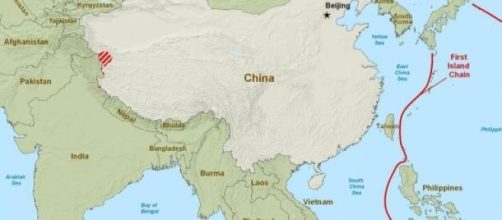China has been considered to be a rising power for quite some time now, destined to fulfill its role as a key player. Most have been considering all of this solely in an economic sense. Lately, this came to be true and China has become the second largest GDP in the world.
Even with many of its domestic issues like income inequalities or rebellious minorities, it is now being taken seriously in many forums and the whole international arena. Inherently, with economic progress other ideas of growth become more plausible. In the context of China, this involves standing their ground and more importantly looking for ways of expanding.
China has entered into the global competition of gaining control via large investments and concessions (e.g. like those in Africa) but is now aspiring to expand in a different sense as well, in a geopolitical way to be precise. To do this China needs to make claims in certain maritime issues as eventually it is their gateway to the rest of the world and global trade.
Since China has access to two seas, but can only use them to a limited extent, it should be more than comprehensible that the PRC wishes to make its mark on the maritime map. Those with whom it shares these waters are not making this easy, as they are either not so keen on cooperating, or are outright hostile. Some may say that therefore China only has a pseudo-closed sea coastline due to this.
The East China Sea would be a plausible option to advance, but here the Taiwan Strait poses the first obstacle to naval supremacy since the "natural" foe, the Republic of China awaits them on the other side. This is not alleviated by Japan being the other key player here, which also provides territory for US naval bases (underscored by defensive agreements).
Furthermore, Japan and China have a lukewarm relationship that tends to get quite hostile from time to time and reconciliation after WWII has been sluggish.
All of this manifests itself eloquently in the case of the Pinnacle Islands where these three actors are claiming not more than 5 small islands. Although a few decades ago the islands became more significant as scientists discovered potential undersea oil reserves, the situation should be considered as more of a struggle for domination of the sea.
The US transferred control back to Japan in 1971 (who administered it prior to the US occupation), but this move and its validity has been disputed by both China and Taiwan. Administratively it is now a part of a Japanese city (Ishigaki), a PRC county and an ROC township. Tensions escalate from time to time, but since there are 3 major global powers contending, it is becoming more of a stalemate for now. Aside from occasional muscle flexing, the dispute has not been turbulent lately.

